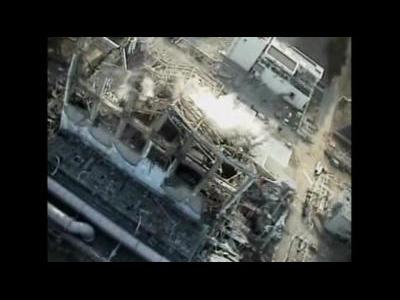TOKYO – Japan raised the crisis level at its crippled nuclear plant Tuesday to a severity on par with the 1986 Chernobyl disaster, citing high overall radiation leaks that have contaminated the air, tap water, vegetables and seawater.
Japanese nuclear regulators said they raised the rating from 5 to 7 — the highest level on an international scale of nuclear accidents overseen by the International Atomic Energy Agency — after new assessments of radiation leaks from the Fukushima Dai-ichi plant since it was disabled by the March 11 tsunami.
The new ranking signifies a "major accident" that includes widespread effects on the environment and health, according to the Vienna-based IAEA. But Japanese officials played down any health effects and stressed that the harm caused by Chernobyl still far outweighs that caused by the Fukushima plant.
The revision came a day after the government added five communities to a list of places people should leave to avoid long-term radiation exposure. A 12-mile (20-kilometer) radius already had been cleared around the plant.
The news was received with chagrin by residents in Iitate, one of the five communities, where high levels of radiation have been detected in the soil. The village of 6,200 people is about 40 kilometers from the Fukushima plant.
"It's very shocking to me," said Miyuki Ichisawa, 52, who runs a coffee shop in Iitate. "Now the government is officially telling us this accident is at the same level of Chernobyl."
Iitate's town government decided Tuesday to ban planting of all farm products, including rice and vegetables, said local official Shinichi Momma. The national government earlier banned rice growing there but not necessarily vegetables.







